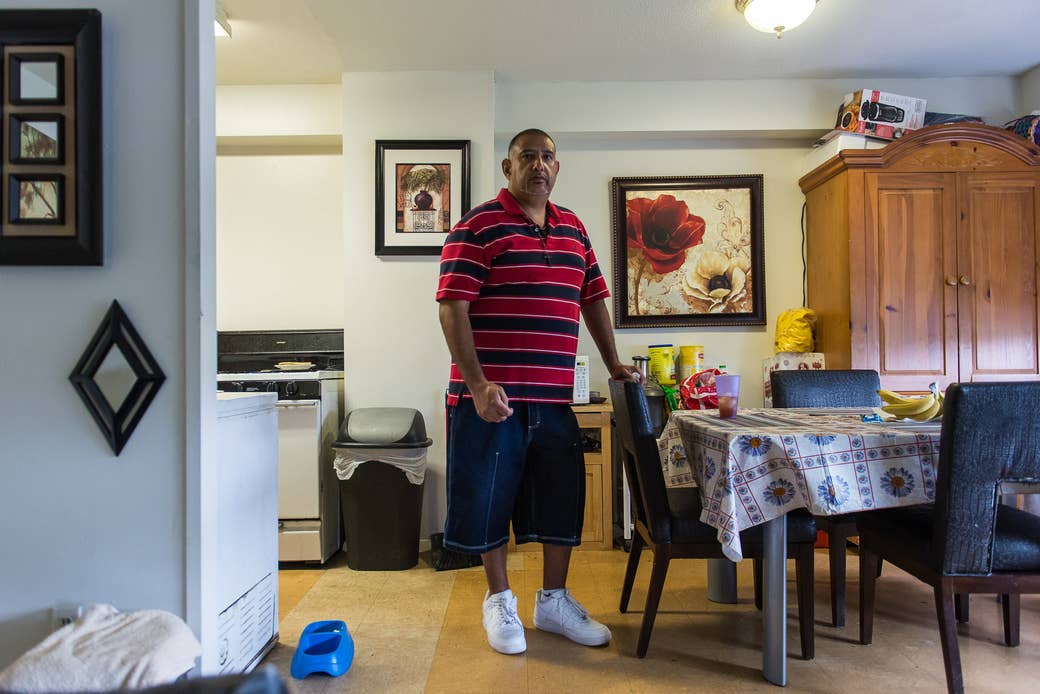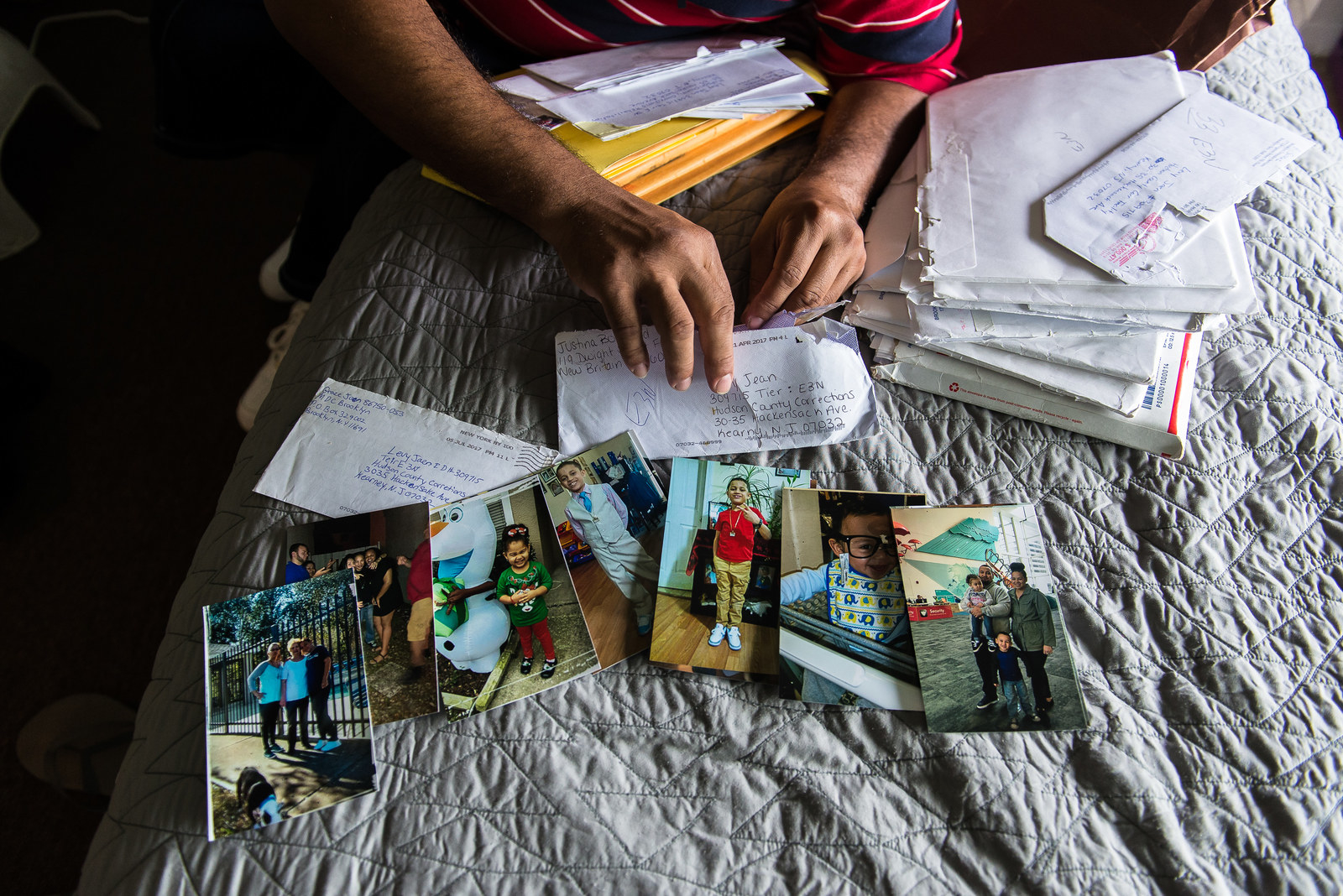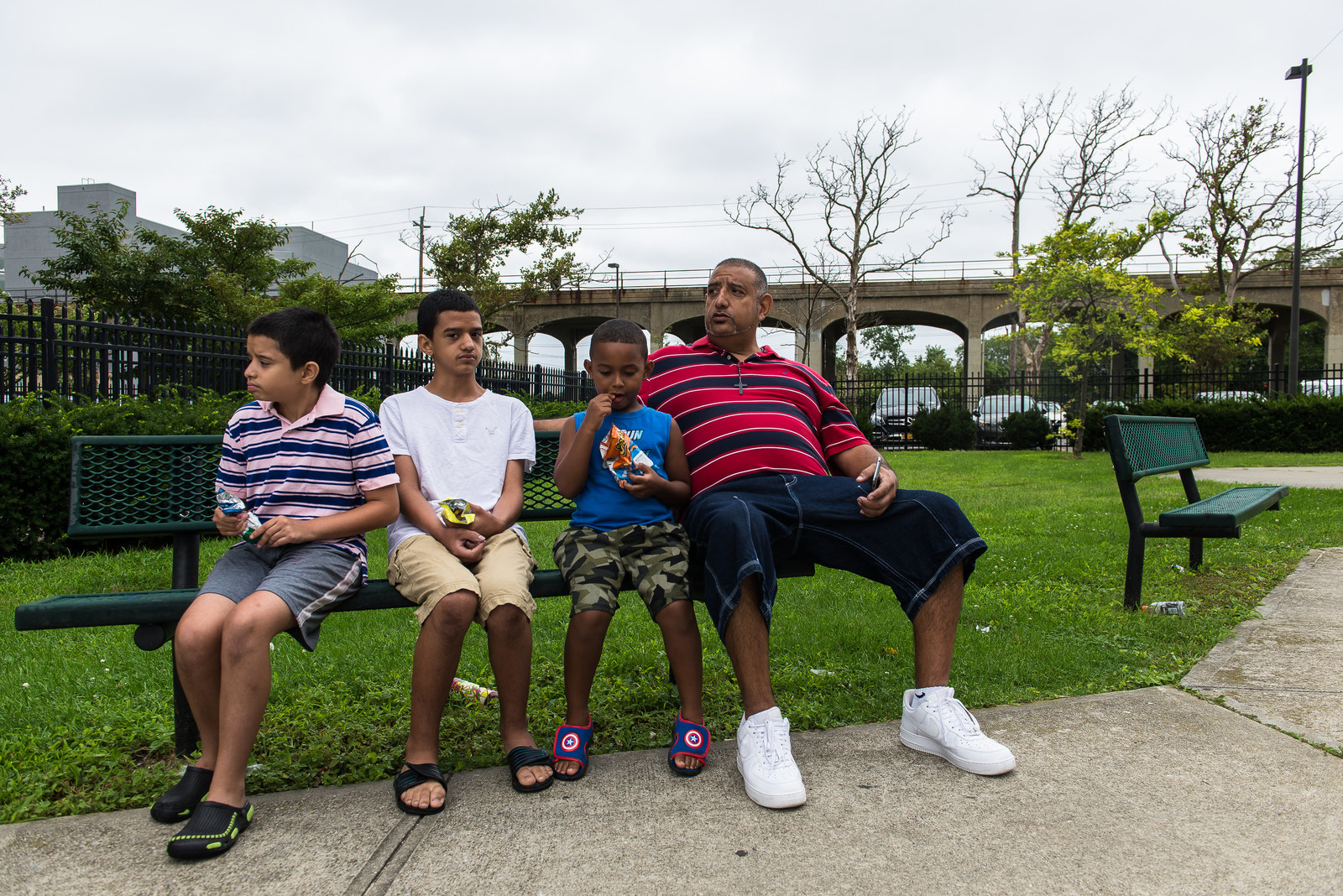
Levy Jaen wakes up some nights in his Queens home drenched in sweat, panicking after dreaming that he was still in jail, with Immigration and Customs Enforcement officers telling him to pack his things because he was getting deported.
It’s a vivid reminder of the nearly two years he spent locked up in an ICE detention center in New Jersey, explaining to anyone he could find — officers, judges, attorneys — that he was a US citizen, that the deportation order against him shouldn’t apply to him and that he shouldn’t have to leave his four children and the life they had in New York.
During his time in detention, which began in May of 2016, Jaen called his kids daily: three sons who are now 13, 14, and 26, and one daughter who is 19. He worried constantly about how his 26-year-old son was doing taking care of them, the youngest of whom is autistic.
“Daddy, when are you coming home?” his children asked him.
“It’s going to be okay,” he’d say. He’d lie: “Daddy is coming home soon in a couple of months.” He missed two Christmases and multiple birthdays.
It wasn’t till April of this year that the 2nd Circuit US Court of Appeals affirmed his citizenship and ordered him released, before publishing a written opinion on the case last week, in which the court chastised the government for detaining him all those months as his appeals worked through the government’s processes. Last week, he talked about that hardship for the first time.
“All this suffering, not just for me but for my family and my kids. It was a hardship,” Jaen, 46, told BuzzFeed News. “It’s inside of me still.”
His case hinged on how the US government defines the way citizenship is transmitted from a parent to a child and how society determines what is a family. It’s also a window into the US immigration system, which advocates say was unnecessarily inhumane and complicated even before Donald Trump became president. When Jaen was incarcerated, Barack Obama was still in office. One of the appeals court judges said she was “troubled” by the government’s actions.
"I write separately to observe that though this decision rests upon perennial principles — in other words, no grand innovation of law undergirds our decision today — the government … chose to detain Jaen for the entirety of this appellate process,” Circuit Judge Rosemary Pooler, who was appointed to the court by former president Bill Clinton, wrote in a commentary on the case. “I am troubled by these choices, particularly given the legal question at issue — Is Jaen a US citizen? — whose affirmative answer has resulted in the United States government holding a United States citizen in immigration detention for nearly two years.”
Jaen’s path to the country is complicated: His parents, who were married in 1952, had moved to New York in the late 1950s and his father later became a citizen. His mother, however, gave birth to him in Panama, where the family was from, and his original birth certificate lists a man his mother had had an affair with as the father.
Still, his mother stayed with her husband, who considered Jaen his son until his death decades later, his attorneys say. In 1988, at the age of 15, Jaen came to the US on a visa and had lived in New York ever since, going to high school in Queens. He spent his life assuming he was a US citizen, like his siblings.

But in the spring of 2016, Jaen was detained by immigration authorities after he completed a two-year sentence for his second drug possession conviction. ICE officials claimed he should be removed from the country because he’d overstayed a visa and was convicted of the drug charge.
As the government attempted to deport him, he and his attorneys argued that because Jaen had been born into a marriage in which one of his parents, a man he considered his father, was a US citizen, Jaen, too, was a citizen.
Jaen’s filings in the case included declarations from his siblings, who explained that while Jaen’s father was not his biological parent, his father considered him his own son.
ICE attorneys, however, argued that because his father was not his biological parent, citizenship could not be passed to him.
“It is really striking for the government to be running around telling marital families that ‘no, this isn’t really a family,’” said one of his attorneys, Ian Samuel, an associate professor at Indiana University’s Maurer School of Law. “That offends some of the oldest instincts we have as a civilized people.”
Even so, an immigration judge and an immigration appeals panel agreed with the government, and ICE continued to hold him even as his attorneys argued that he be released on bond since he was no flight risk — he wanted to stay in the US. They continued to appeal his case, taking it to the federal courts.
“ICE seemed totally unconcerned they were imprisoning and deporting a US citizen,“ said his immigration attorney, Andrea Sáenz, from Brooklyn Defender Services, which is funded for deportation defense through New York City. “I felt that they only saw him as a person with a criminal history.”
Meanwhile, Jaen sat in the Hudson County Correctional Facility in New Jersey, wondering if on any given day he’d be deported.
He thought: What would his kids do if he was to be forced out of the country? What would happen to them? Jaen was a single parent, he said. After his unsuccessful bond attempt, he heard from his family members that his oldest son had sat in his room that day with the door closed.
“He didn’t know if I was going to get deported,” Jaen said. “They were all in pain. It was hard to explain.”
He tried to stay positive, telling himself that the law was on his side. He was convinced that he was a citizen.
“I had to keep myself upright, from not giving up,” he said. “I’ve seen people lose it.”
Then, on April 13, as Jaen worked in the detention center kitchen, he got a summons: His attorney wanted to talk to him through video chat. She told him that the 2nd Circuit Court of Appeals had ruled that he should be released, and all deportation proceedings against him should be thrown out.
As he sat sobbing, unable to respond or muster any words, Saenz told him: “We did it.”
She told him to pack up his stuff because he was going home that day, where he later reunited with his children at their home in Queens.
“I felt that weight uplifted from my back. It was the happiest day of my life for me, my kids and my family,” he said.

Last week, the court issued its written opinion in the case. In it, the judges explained that US law has long recognized that a child born to a legally married couple is considered the child of the husband, regardless of who the biological father is. It’s a standard recognized by all 50 states and the federal government going back decades, the judges noted. They said Jaen was indeed a US citizen.
“This presumption,” the court wrote, "has reflected the traditional ‘aversion to declaring children illegitimate,’ as well as an interest in promoting familial tranquillity through deference to the marital family.”
There is no requirement, they said, that a parent have a biological tie to pass on citizenship.
These days, Jaen is making up for lost time: cooking breakfast and dinner for his children as his attorneys work to get him a passport and all the official paperwork he needs. Things haven’t been easy — before his criminal sentence and immigration detention he had been a delivery man for 15 years, but looking for a stable job now has been challenging. He tries to look on the bright side.
“At least I got an opportunity to be back with my kids. Little by little, my kids know that Dad is home. All the pain and suffering — that is always going to be there,” he said, explaining how he sometimes breaks down crying in the shower, thinking about being separated from them.
“Everything is good. I can be there for them. Now, when they say ‘Dad’ they know that Dad is going to be there for them.”

